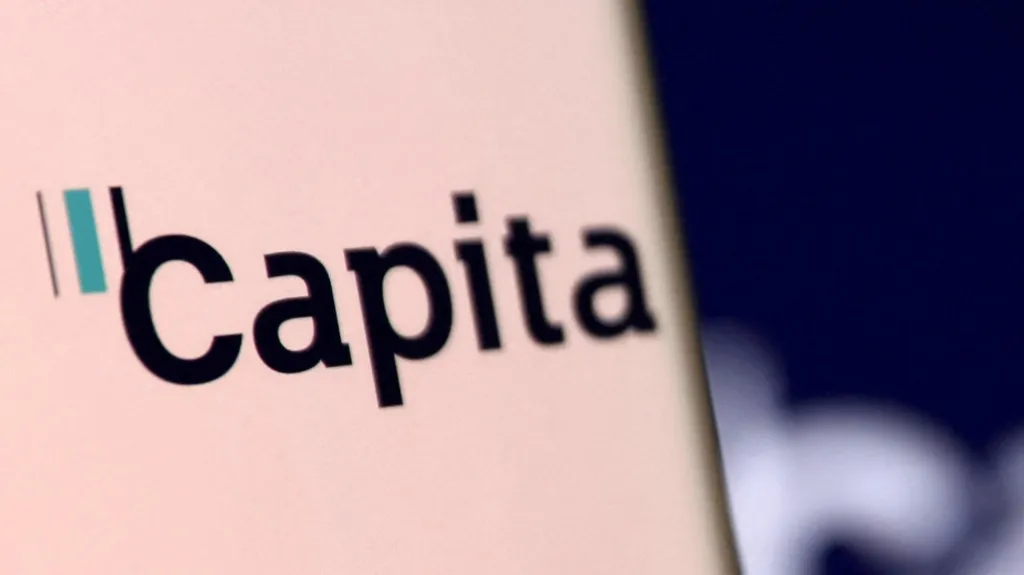The UK’s Information Commissioner’s Office (ICO) has imposed a substantial £14 million fine on Capita, one of Britain’s largest outsourcing firms, following a devastating cyber-attack that compromised the personal information of 6.6 million individuals. This enforcement action underscores the critical importance of robust cybersecurity measures and the severe consequences organizations face when they fail to protect sensitive customer data adequately.
The ICO determined that Capita “failed to ensure the security of processing of personal data which left it at significant risk,” representing serious violations of data protection regulations. While the initial penalty was set at £45 million, negotiations between Capita and the regulatory body resulted in a reduced settlement of £14 million—still one of the largest data protection fines issued by UK authorities.
What Happened: Understanding the Capita Cyber-Attack
Scale of the Data Breach
The cyber-attack on Capita resulted in unauthorized access to personal information belonging to approximately 6.6 million people. This massive breach affected customers across multiple sectors, as Capita provides outsourcing services to numerous government agencies, local councils, and private companies throughout the United Kingdom.
The stolen data potentially included names, addresses, contact information, financial details, and other sensitive personal information depending on the specific services individuals used.
Timeline of the Incident
While specific dates of the initial breach haven’t been fully disclosed in public statements, the investigation and enforcement process typically takes months or years as regulators thoroughly examine security failures, data exposure scope, and organizational response measures.
According to BBC News, major data breaches often remain undetected for extended periods before discovery, allowing attackers prolonged access to sensitive systems.
ICO Investigation Findings
Security Processing Failures
The Information Commissioner’s Office conducted an extensive investigation into Capita’s data security practices. Their findings revealed systemic failures in how the company processed and protected personal data.
The ICO’s statement emphasized that Capita left personal data “at significant risk” through inadequate security measures. This suggests multiple vulnerabilities that cyber criminals exploited to gain unauthorized access.
Regulatory Violations
Under the UK General Data Protection Regulation (UK GDPR) and Data Protection Act 2018, organizations must implement appropriate technical and organizational measures to ensure data security. Capita’s failures to meet these legal obligations formed the basis for the regulatory action.
Data controllers bear responsibility for protecting information entrusted to them, regardless of whether they process it directly or through third-party arrangements.
The £45 Million to £14 Million Reduction
Original Penalty Assessment
The ICO initially proposed a £45 million fine based on the severity of the breach, number of affected individuals, and extent of security failures identified during their investigation. This figure would have represented one of the largest data protection penalties in UK history.
Regulatory authorities calculate fines using various factors including:
- Number of people affected
- Nature and sensitivity of compromised data
- Duration of violations
- Organization’s cooperation with investigations
- Previous compliance history
- Financial circumstances
Settlement Negotiations
Through discussions between Capita and the ICO, the final penalty was reduced to £14 million. While details of these negotiations remain confidential, such reductions typically occur when organizations demonstrate:
- Genuine cooperation with regulators
- Implementation of corrective security measures
- Financial hardship considerations
- Early admission of responsibility
- Comprehensive remediation plans
According to The Guardian, regulatory settlements often involve companies committing to specific improvements beyond monetary penalties.
Still a Substantial Penalty
Despite the reduction, £14 million represents a significant financial consequence that underscores the serious nature of data protection failures. This fine sends a clear message to other organizations about the importance of prioritizing cybersecurity investments.
Capita’s Response to the Fine
CEO Statement
Capita’s Chief Executive Adolfo Hernandez issued a statement saying the company was “pleased to have concluded this matter and reached today’s settlement.” This diplomatic language suggests Capita acknowledges the violations while expressing relief that the regulatory process has concluded.
Acceptance of Responsibility
By reaching a settlement rather than contesting the fine through appeals, Capita implicitly accepted responsibility for the security failures identified by the ICO. This approach allows the company to move forward with rebuilding trust among clients and customers.
Remediation Measures
While specific details weren’t disclosed in available statements, Capita likely implemented comprehensive security improvements as part of the settlement agreement. These typically include:
- Enhanced encryption protocols
- Multi-factor authentication systems
- Regular security audits
- Employee cybersecurity training
- Incident response plan updates
- Third-party security assessments
Impact on Affected Individuals
6.6 Million People at Risk
The 6.6 million individuals whose data was compromised face potential risks including:
- Identity theft
- Financial fraud
- Phishing attacks using stolen information
- Social engineering scams
- Long-term privacy concerns
According to the National Cyber Security Centre, victims of data breaches should remain vigilant for years afterward, as stolen information can be exploited long after the initial incident.
Notification and Support
Organizations experiencing data breaches must notify affected individuals within 72 hours under GDPR requirements. Capita presumably contacted those impacted, though the quality and timeliness of these notifications often become scrutiny points during ICO investigations.
Breach victims typically receive:
- Details about what information was compromised
- Recommendations for protective measures
- Credit monitoring services (in some cases)
- Contact information for questions and concerns
Capita: A Major UK Outsourcing Firm
Business Operations
Capita operates as one of the United Kingdom’s largest business process outsourcing and professional services companies. The firm manages contracts worth billions of pounds, providing services including:
- IT services and software
- Customer contact centers
- Payroll and pension administration
- Recruitment services
- Property and infrastructure management
Government and Public Sector Contracts
Capita holds numerous contracts with UK government departments, NHS trusts, local councils, and emergency services. This extensive public sector involvement means data breaches carry particularly serious implications, as they affect citizens’ interactions with essential services.
Previous Controversies
This isn’t Capita’s first brush with controversy. The company has faced criticism over various contract delivery issues, though this represents one of their most significant data security failures.
Broader Implications for UK Businesses
Message to Other Organizations
The substantial fine sends a clear warning to UK businesses about the consequences of inadequate data security. Companies can no longer treat cybersecurity as optional—it represents a fundamental business requirement with serious legal and financial implications.
Rising Cyber Threats
Cyber-attacks targeting UK businesses have increased dramatically in recent years. According to government statistics, cyber crime costs the UK economy billions annually, with attacks growing in sophistication and frequency.
Organizations face threats from:
- Ransomware gangs
- State-sponsored hackers
- Organized crime groups
- Insider threats
- Supply chain vulnerabilities
Investment in Security
This case highlights why organizations must prioritize cybersecurity investments despite budget pressures. The £14 million fine—plus remediation costs, reputational damage, and potential compensation claims—far exceeds what robust security measures would have cost.
ICO’s Enforcement Approach
Protecting Public Interest
Information Commissioner John Edwards has emphasized the ICO’s commitment to holding organizations accountable for data protection failures. The regulator aims to balance enforcement with encouraging improvements across the UK business landscape.
Recent Enforcement Trends
The ICO has issued numerous significant fines in recent years as part of efforts to strengthen data protection compliance. High-profile penalties against major companies demonstrate that size and reputation don’t shield organizations from accountability.
According to Infosecurity Magazine, ICO enforcement actions have increased as regulators adapt to evolving cyber threats and more sophisticated attacks.
Lessons for Organizations
Essential Security Measures
Businesses should implement comprehensive security frameworks including:
Technical Controls:
- Advanced encryption for data at rest and in transit
- Multi-factor authentication across all systems
- Regular security patches and updates
- Network segmentation and access controls
- Intrusion detection and prevention systems
Organizational Measures:
- Regular risk assessments
- Comprehensive security policies
- Employee training programs
- Incident response plans
- Third-party vendor assessments
- Regular penetration testing
Compliance as Ongoing Process
Data protection compliance isn’t a one-time checkbox but requires continuous attention, updates, and improvements as threats evolve and regulations develop.
What Should Affected Individuals Do?
Immediate Actions
If you believe your data was compromised in the Capita breach:
- Monitor financial accounts for suspicious activity
- Enable fraud alerts with credit reference agencies
- Change passwords for any accounts that may have been affected
- Watch for phishing attempts using your stolen information
- Report suspicious activity to Action Fraud (UK’s cybercrime reporting center)
Long-Term Vigilance
Data breach victims should maintain heightened awareness for years, as stolen information can surface in future attacks or fraud attempts.
The Future of Data Protection in the UK
Strengthening Regulations
This case may prompt discussions about whether current penalties sufficiently deter data protection failures. Some advocates argue for even stronger enforcement to match the scale of modern data breaches.
Technology Evolution
As artificial intelligence, cloud computing, and digital transformation accelerate, data protection challenges will intensify. Organizations must continuously adapt security measures to address emerging threats.
International Cooperation
Cyber criminals operate globally, requiring international cooperation among regulators, law enforcement, and businesses to combat data breaches effectively.
Conclusion: Accountability for Data Security Failures
The £14 million fine imposed on Capita demonstrates that UK regulators take data protection seriously and will hold even major corporations accountable for security failures. With 6.6 million people affected, this breach represents a massive violation of trust that demanded substantial consequences.
For businesses, the message is clear: invest in robust cybersecurity, prioritize data protection compliance, and recognize that the costs of prevention pale in comparison to the financial, legal, and reputational costs of major breaches. For individuals, this case serves as a reminder to remain vigilant about personal information and understand your rights when organizations fail to protect your data adequately.
As cyber threats continue evolving, incidents like this will unfortunately remain common unless organizations fundamentally transform their approach to data security—treating it not as a technical afterthought but as a core business imperative requiring ongoing investment and leadership attention.



















Comments